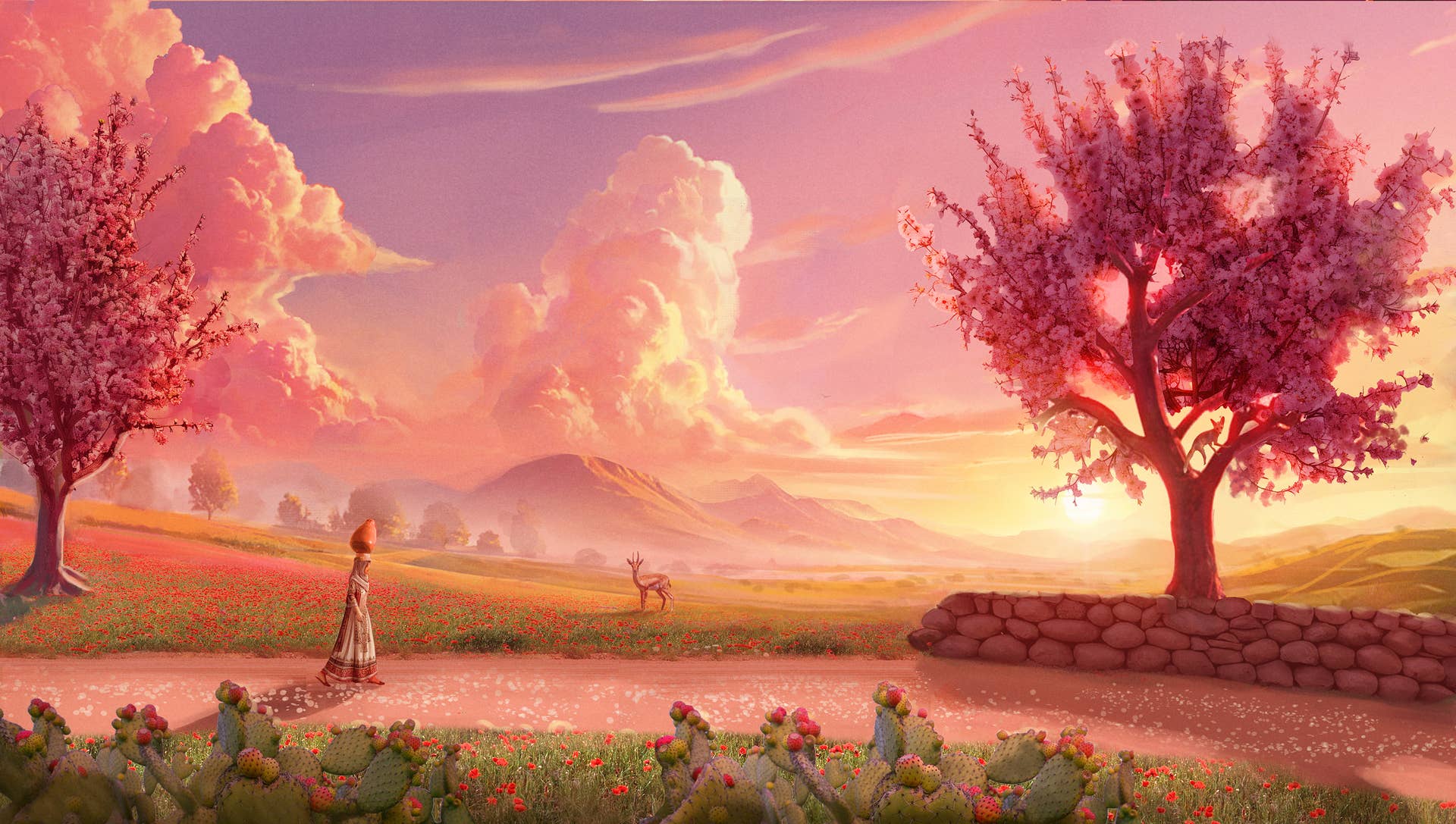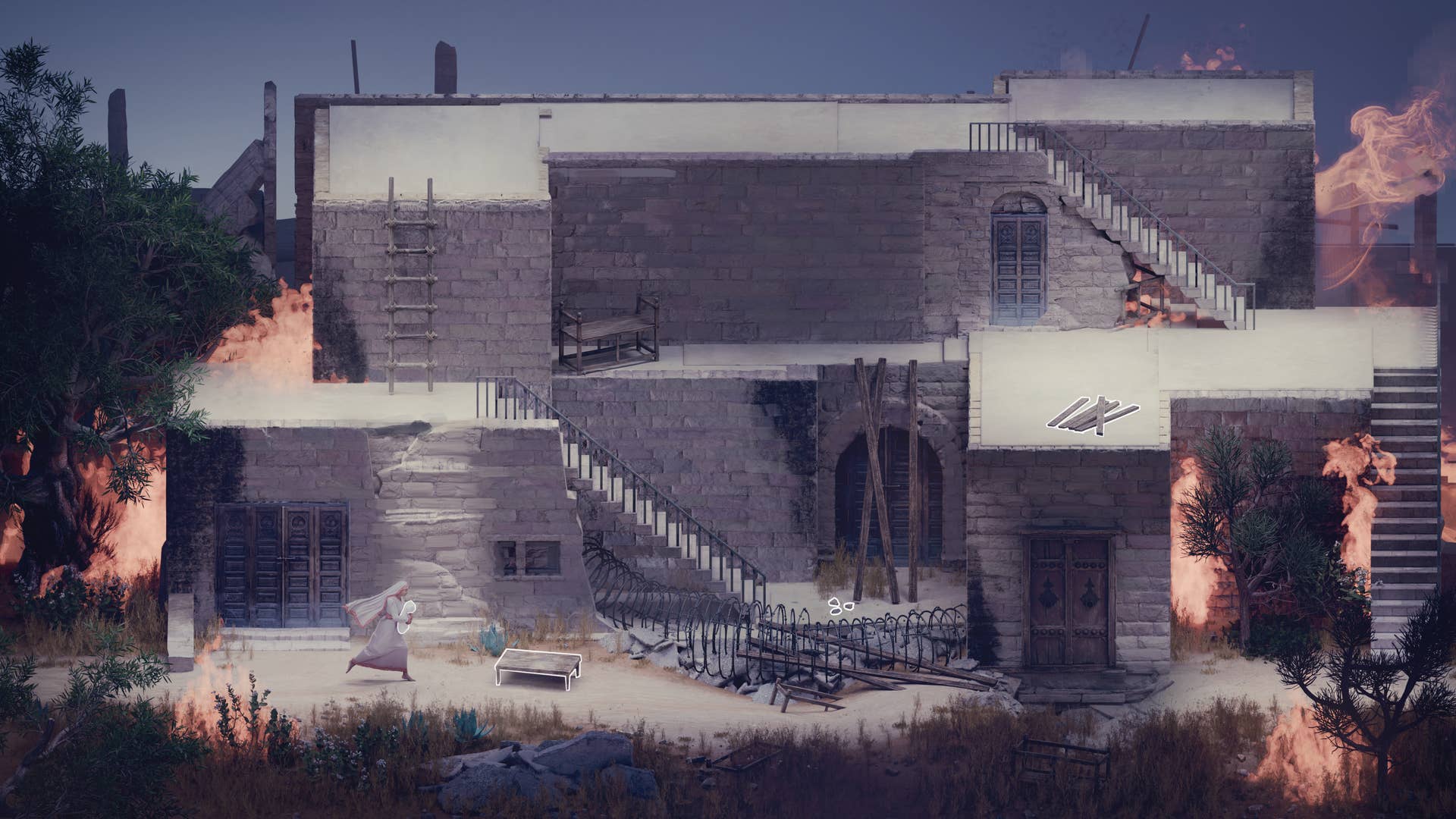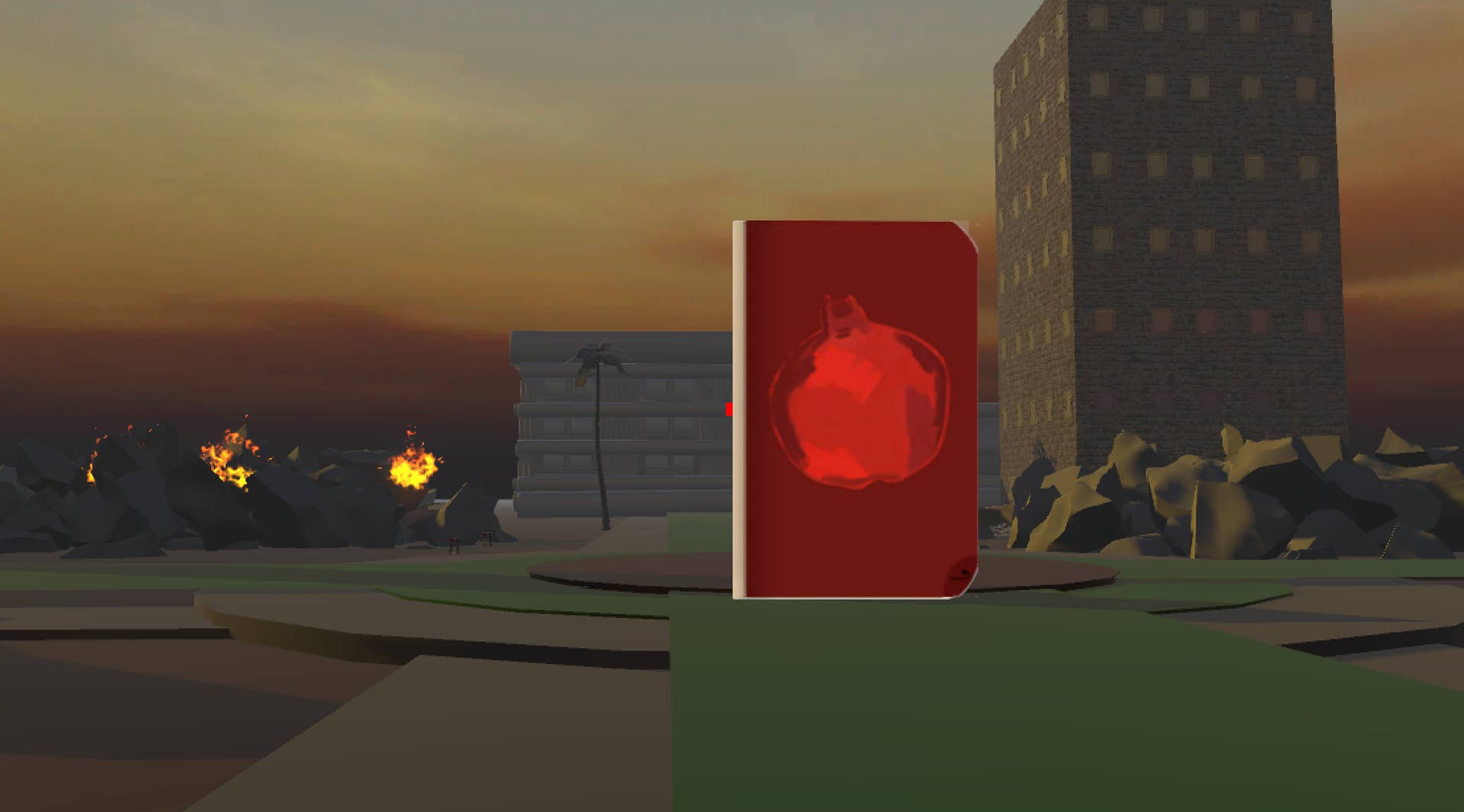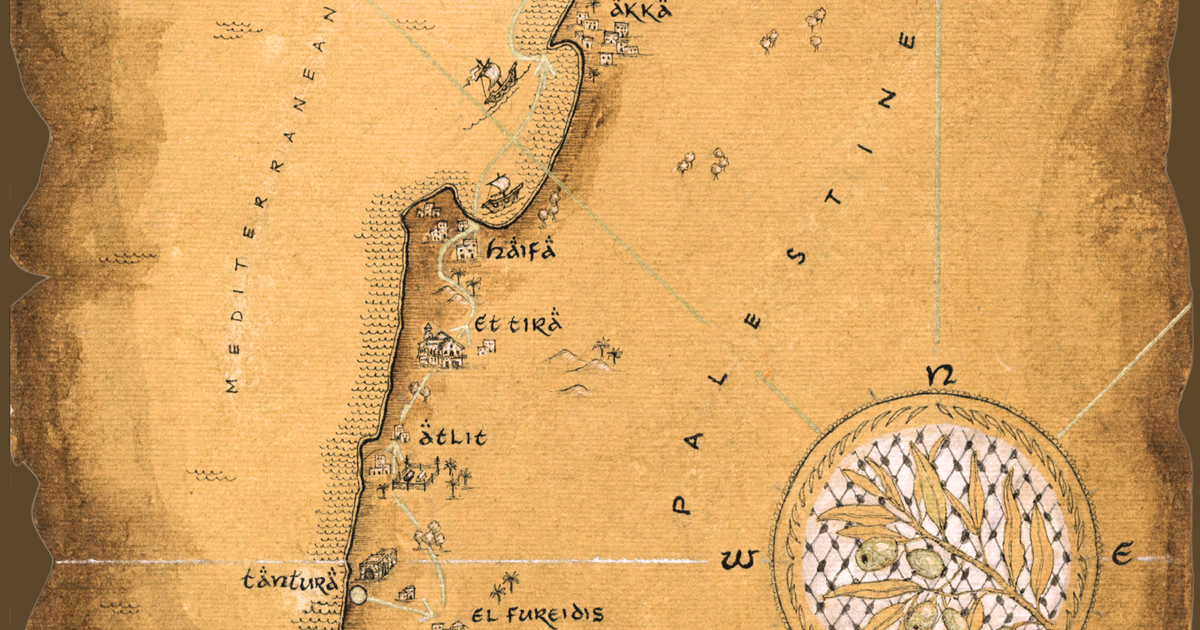In September, a group of industry professionals announced Palestinian Voices in Games (PVG), a program “dedicated to empowering current and emerging Palestinian game developers.”
Involving over 50 games industry representatives – including Lizardcube (Shinobi: Art of Vengeance), Santa Ragione (Saturnalia), Sickhouse (founders of the the Overkill Festival), and a handful of other studios and individuals – PVG aims to “combat the underrepresentation and dehumanization of Palestinians by offering direct professional support.” Currently, the initiative is working with four Palestinian creators, two of whom we spoke to for this article.
The initiative started taking shape at Berlin’s Amaze festival in May 2024, several months into Israel’s occupation of northern Gaza in response to Hamas’s attack on Israel on October 7, 2023. The genesis, according to one of the organisers (who declined to be named to keep the program and the supported projects at the centre of the conversation) was “just a group of developers in a room discussing, ‘Is there anything that we can do? Is there anything that we’re good at that could make an impact on this?'”

“Formally, we’re nothing. Just a group of people that do biweekly chats and have a group chat, and talk about next steps. We’re not formally organised in any way that would be necessary both to do something like collecting money or offering legal protection.”
“[But] from that group, there was a group chat. From the group chat, there were meetings. Then from those meetings, we decided on a format.”
The format involves finding volunteers with different skill sets – whether they’re artists, writers, or people with publishing experience – assessing their strengths and availability, and assigning them to projects to which they’re best suited.
Currently, PVG has around 100 participants. Throughout the entire game production process, two of them – one main contact and one secondary contact – stay in touch with both the Palestinian creators and the volunteers. Each one of them is vetted (“we want people that we can absolutely trust and [know] that they’re being respectful”). The remaining participants help with organising the program and facilitating these collaborations.
“The long-term vision of the program is ‘What is it that this group of people is good at that can maximally be helpful with regards to the situation at hand?’ And the truth is that the needs that arise from the conflict are way out of what game developers can contribute to, because you need doctors, all other kinds of skills [unrelated to game development]. But what is true is that the dehumanisation process comes with an effort to silence both [the] media and the Palestinian creators.”
“When you look at the practical issues, there are many Palestinian creators, in Palestine, but mostly in diaspora, that want to use this medium to talk about their stories. But they lack infrastructure. They lack funds. They lack expertise in some situations. And we have networks of contacts, we know press, we know publishers, we know distributors. So those things are the things that we can help with.”
A responsibility
One of the first projects backed by PVG is Dreams on a Pillow by Rasheed Abueideh. This 2.5D stealth adventure, inspired by a historical Palestinian folk tale and set during the 1948 Nakba (meaning “catastrophe”), tells the tragic story of a young mother who, while fleeing invasion, mistakenly carries a pillow instead of her newborn child.
“Living nightmares encroach on Omm’s reality every time she sets Pillow down. The swirling terrors reveal the dangers of the mind, and shroud the dangers of the real world. Unsure of what is real and what is not, Omm has to ensure she completes her objectives and makes it back to Pillow… before her mind is lost to her guilt and trauma,” reads the game’s crowdfunding page on the Muslim-focused platform LaunchGood. The campaign raised over $240,000 – about half of what Abueideh hopes to raise in order to complete the project, pay his seven-person team on time, and support his family of five.

“The kind words and the importance of such a project have been immediately noticed by all supporters,” Abueideh tells GamesIndustry.biz over a Zoom call from his West Bank home. The software engineer turned game developer previously made the headline-grabbing mobile title Liyla and the Shadows of War, about the struggles of a Palestinian family to survive a series of armed attacks. Abueideh was first approached by the program runners at the start of the year, shortly after he launched the crowdfunding campaign. “I have a couple of friends in the gaming industry with a direct relationship with Palestinian Voices in Games. They reached out and said, ‘We are building a platform to help Palestinian-led projects formed by people from the gaming industry.’ I mean, usually, we’re not on the map. So I was willing to jump in to work with them.”
Abueideh agreed to work together with the still-gestating PVG initiative. The partnership helped him refine contracts, secure additional resources, and receive pro bono consultation from the program’s volunteers.
Abueideh makes no attempt to hide the urgency and importance of a project with such a deeply political nature. “It’s not a passion anymore. It’s more of a responsibility,” he says. “I think the importance of it has increased with what’s happening right now. We are seeing a lot of change and many people want to understand why this is happening and how we can stop it.
“Even before the crowdfunding campaign, I spent more than a year dedicated only to that. And working for a whole year without knowing if you can do this or not, because you need a lot of resources, was a huge risk. So, on a personal level, it means a lot. And even if no one plays this game, at least I’m doing something that is within my ability.”
Real things
The sentiment is shared by Yasmine Batniji, a Brooklyn-based Palestinian American artist, whose first-person, story-driven experience Pomegranates is also backed by PVG. “There’s tons of people, especially before October 7th, who’re not interested in anything I had to say about my games,” says Batniji. “‘That’s way too political. They’re too much.’ My games aren’t fun or exciting – they’re real things.”
Inspired by Afrofuturism and the X page Martyrs of Gaza, which describes and memorialises Palestinians who have been killed since October 7, 2023, Pomegranates (which is playable on Itch.io) brings destroyed landmarks back to life through digital archiving and 3D modelling. This is something Batniji became fascinated with after discovering the NewPalmyra project, an open-source initiative that saw Syria’s 2,000-year-old Temple of Bel, destroyed by ISIS in 2015, digitally reconstructed based on thousands of photographs.
The 31-year-old designer got to try out 3D scanning first-hand after winning a travel grant in 2019 that saw them go to Palestine. But making a follow-up trip for Pomegranates, a project they did as their NYU Game Center Graduate thesis, wasn’t feasible.
“I’ve always been wary about making a game about Gaza. Because it’s so much harder to make a game about Gaza. Google Maps isn’t in Gaza. I can’t go to Gaza… Just the access around Gaza is really difficult. But I was like, ‘If there’s any time to make a game about Gaza, it’s now.'”

Batniji’s partnership with PVG began after they gave a talk about making political games in May 2024, which one of the initiative’s organisers attended. After some back and forth, the program decided to take on Pomegranates as one of their initial projects, and soon Batniji was paired with a 3D modeller (who didn’t remain with the project) and an “absolutely incredible” narrative designer based in France (“I don’t think I would’ve found anybody like that on my own.”).
The greatest support from PVG comes not from volunteers or production guidance, Batniji claims, but from the motivation and accountability to see Pomegranates 2.0 through to completion. “I just don’t think I could do it. I started version 2.0 because the advisor I worked with at the Game Center came up to me and she was like, ‘Let’s work on Pomegranates.'” It wasn’t until Batniji was tapped by PVG soon after that they actually considered turning the game from student project to full release.
“I think if it wasn’t for [PVG], I wouldn’t even have what I have today. It’s like they’re keeping me accountable. Because before there was no one to keep me accountable but myself, which is really hard.” Batniji is now working with a team of volunteers on the new version of Pomegranates, which places players in the shoes of three Palestinians in the al-Ahli Arab Hospital during the Israeli invasion.
Hope amid the rubble
Less than a week after PVG launched its program in September, ten UN member states, including the UK, Canada, and Australia, officially recognised the state of Palestine. Such political gestures might make partnerships with initiatives like PVG more appealing to both government and industry bodies, but the program’s organisers remain sceptical.
“What we hear back when trying to reach out to generalist media, even to progressive pro-Palestinian outlets and journalists, is: ‘I can’t talk about this serious topic with regards to games. Our readers will find it offensive,” we’re told. “So, I don’t imagine any public or official support for the project coming any time soon.”
Despite this, they persist in hoping for a future where projects like PVG are embraced by the general public – and Palestinian developers like Batniji don’t feel the need to hide their politically provocative portfolio in fear of repercussions. The belief is that the program will get more interest over time.
“There are a lot of people out there that are interested in [PVG], but they’re afraid to participate because of how wrongly controversial this issue is. And the more countries recognise Palestine, the more people will feel comfortable joining programs such as Palestinian Voices in Games.”
